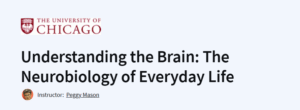What you will learn in Introductory Human Physiology Course
Understand the basic concepts governing integrated body function.
Recognize how the body’s nine organ systems work together to maintain health.
- Apply knowledge to real-life situations and medical conditions.
Program Overview
Introduction to Human Physiology
⏱️1 hours
Overview of the course structure and objectives.
Introduction to the fundamental concepts of human physiology.
Homeostasis and the Endocrine System
⏱️3 hours
Understanding the concept of homeostasis.
Exploration of the endocrine system and its role in maintaining internal balance.
The Nervous System
⏱️ 3 hours
Study of the nervous system’s structure and function.
Examination of how the nervous system controls and coordinates body activities.
The Muscular System
⏱️3 hours
Analysis of muscle types and their functions.
Understanding muscle contraction and movement.
The Cardiovascular System
⏱️ 3 hours
Exploration of the heart and blood vessels.
Study of blood circulation and its importance in transporting nutrients and oxygen.
The Respiratory System
⏱️ 3 hours
- Understanding the mechanics of breathing.
- Examination of gas exchange and its role in maintaining blood pH.
The Digestive System
⏱️ 3 hours
Study of the digestive tract and accessory organs.
Exploration of nutrient absorption and waste elimination processes.
The Urinary System
⏱️ 3 hours
Understanding kidney function and urine formation.
Examination of fluid and electrolyte balance.
The Reproductive System
⏱️ 3 hours
Study of male and female reproductive anatomy.
Exploration of reproductive processes and hormonal regulation.
The Immune System
⏱️ 3 hours
Understanding the body’s defense mechanisms.
Study of immune responses to pathogens.
Integration and Application
⏱️ 3 hours
Review of key concepts from all organ systems.
Application of knowledge to real-world scenarios and medical conditions.
Get certificate
Job Outlook
The demand for professionals with a strong understanding of human physiology is high in various fields, including healthcare, research, and education. Key skills include:
Knowledge of human body systems and their functions.
Ability to apply physiological concepts to real-life situations.
Strong analytical and problem-solving skills.
Specification: Introductory Human Physiology
|
FAQs
- The course features 10 modules and is classified as Beginner level.
- Estimated completion time is around 3 weeks, assuming 10 hours per week—approximately 30 hours total.
- Fully self-paced, so you can tailor it to your schedule.
- No prior experience is required. The course is designed for learners from all backgrounds.
- However, having a basic understanding of anatomy may make visualizing systems easier.
Learners explore nine major body systems through an engaging, integrated approach, covering:
- Ideal for students, healthcare professionals, or curious learners seeking a foundational grasp of how the body works.
- Great for MCAT prep, career refreshers, or building scientific literacy.
- Upon completion, you earn a shareable Coursera certificate from Duke University.





